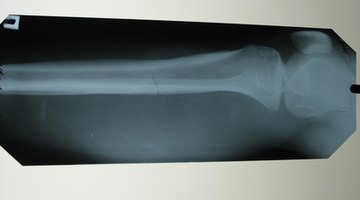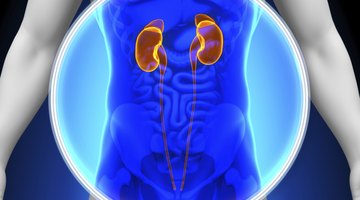Causes of Mucus in the Stools & Abdominal Pain
Small amounts of mucus in the stool are often normal. MayoClinic.com describes the lining of the intestines and colon as coated in a jelly-like substance that acts as a lubricant. When the intestines get irritated by any number of things the result can be some abdominal pain with mucus in the stool. Frequent bowel movements, especially those associated with an infection, have a greater likelihood of containing mucus.
Irritable Bowel Syndrome
Irritable bowel syndrome is difficult to diagnose, according to American Family Physician. It can have many causes that are hard to identify including food allergy or intolerance. Symptoms of IBS often include bloating, abdominal pain that only ends with elimination and mucus in the stool. Patients with IBS may feel a strong urge to eliminate but, following the bowel movement, feel as if there is more stool to pass.
Inflammatory Bowel Diseases

Fever Blisters & Orange Juice
Learn More
Crohn's disease and ulcerative colitis are two common inflammatory bowel diseases that can cause mucus in the stool and abdominal pain. Ulcerative colitis affects the large intestine and rectum, explains the National Institutes of Health. It occurs when these tissues become inflamed and develop open wounds, called ulcers. Crohn's disease is similar to ulcerative colitis in the type of digestive response it produces. It can affect the entire digestive tract, from the mouth to the rectum. Crohn's sufferers often have an overactive immune system that treats normal particles in the digestive tract as foreign substances that should be attacked like an infectious agent. This causes persistent inflammation. Common symptoms of inflammatory bowel diseases include:
- mucus in the stool
- rectal bleeding
- blood in the stool
- abdominal pain
- bloating
- nausea
- frequent bouts of diarrhea
Infection
Bacterium and viruses can cause abdominal pain and mucus in the stools. These infectious agents can also cause:
- fever
- nausea
- vomiting
- diarrhea
- body aches
- general feelings of illness
The National Institutes of Health point out several common viral agents to include astrovirus, norovirus and rotavirus. Common bacterial infections of the stomach and digestive tract include helicobacter pylori, E. coli and salmonella. These infections can be contracted through consuming contaminated items, such as raw meats or mishandled produce.











